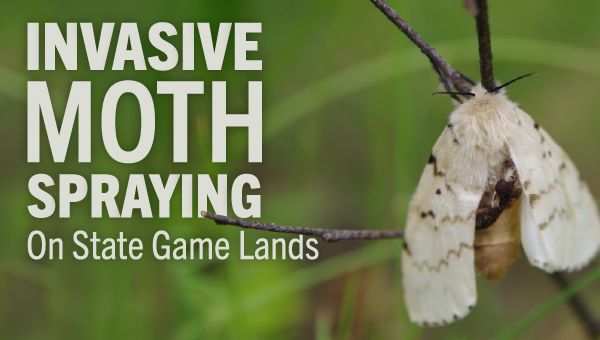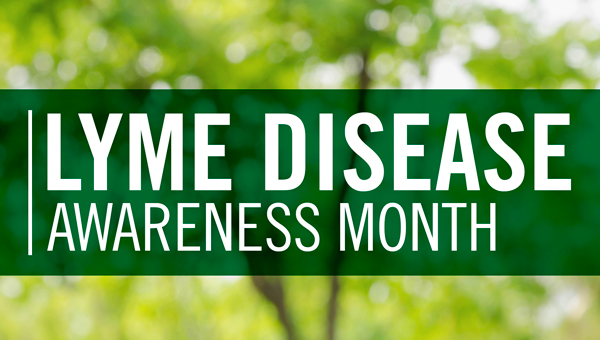|
View this email in a browser
In this Update:
- Mastriano Introduces Legislation to Protect Farmland from overdevelopment and foreign takeover
- PUC Alerts Consumers of June 1 Price Increases for Electric Generation
- Where to Vote on May 17
- Clearing Up Questions About Local Option Small Games of Chance Law
- Gypsy/Spongy Moth Spraying on State Game Lands
- Avoiding Lyme Disease in a State Where It’s Prevalent
In recent years, more and more prime farmland has been lost to development. According to Penn State’s College of Agricultural Sciences, the number of acres of farmland in Pennsylvania fell by 6% (7.3 million acres) between 2012 and 2017. The number of farms dropped by 10% (53,157) over that same period.
Pennsylvania’s successful Agriculture Conservation Easement Purchase Program has been a nationwide model for farmland preservation. Under the easement program, 58 participating county programs receive state funds for the purchase of agricultural conservation easements. An agricultural conservation easement is a legal restriction that limits the use of the property to agricultural purposes and the landowner is financially compensated for the sale of the easement.
Since 1988, the program has purchased permanent conservation easements on 5,979 Pennsylvania farms, covering 606,215 acres in 58 counties.
Mastriano’s bill will increase annual funding to the program by earmarking 10% of PA’s realty transfer revenue to go towards the easement program. This will equate to an average infusion of over $80 million in additional annual funds for farmland preservation. The bill also expands the eligibility of farms by reducing the minimum subdivision size for preserved farmland from 50 acres to 25 acres and allows parcels less than 10 acres that are adjacent to preserved land or used to produce crops unique to the area to be eligible for the easement program.
“An abundance of agricultural land is crucial to maintaining food security and protecting against supply chain instability for the commonwealth and our nation,” said Senator Mastriano. “The agricultural industry provides a $135.7 billion annual economic impact and represents close to 18% of Pennsylvania’s gross state product. It also employs and supports nearly 580,000 people with combined wages of $27 billion. Pennsylvania’s agricultural land provides scenic images of rural life landscaped across fertile valleys of surrounding hills and mountains. These open spaces are a beautiful backdrop and draw thousands to our state to spend money in Pennsylvania’s growing agritourism business. We must act now to preserve these lands.”
The bill has been referred to the Senate Agriculture and Rural Affairs Committee.
PUC Alerts Consumers of June 1 Price Increases for Electric Generation

The Pennsylvania Public Utility Commission (PUC) is alerting consumers that most utilities will be adjusting their prices for electric generation on June 1. Many non-shopping (default service) customers will see sharp increases in energy costs, ranging between 6% and 45%, depending on their electric utility.
This increase is even before Gov. Tom Wolf’s carbon tax kicks in, which could nearly quadruple new electricity costs for consumers. The carbon tax is part of Pennsylvania’s entry into the Regional Greenhouse Gas Initiative, which was enacted by Gov. Wolf without legislative approval.
According to the PUC, one option consumers may want to explore immediately is their utility’s voluntary Standard Offer Program – which is another alternative for default service customers not participating in the competitive electricity market. Consumers and small businesses can also use the PUC’s PAPowerSwitch energy shopping website to explore and compare other offers from competitive energy suppliers which may provide savings compared to their utility’s default service rate.
Where to Vote on May 17

The May 17 primary election is approaching, and if you’re not sure where to vote, the polling place search tool can help.
Enter your address information in the drop-down menus and the tool will locate your polling place. It can also provide directions from your residence to the site.
Polls will be open from 7 a.m. to 8 p.m. on Election Day. Mail ballots must be received by your county board of elections by 8 p.m. on Election Day.
Clearing Up Questions About Local Option Small Games of Chance Law

Questions are being raised by volunteer fire companies and other clubs regarding the Local Option Small Games of Chance (SGOC) law. Many of these groups are under the mistaken impression that a state law exists allowing clubs to conduct online fundraising during the pandemic.
Two bills (Senate Bill 243 and House Bill 290) to authorize online SGOC and raffles during the emergency declaration and for one year afterward, or through May 1, 2022, have been introduced in both chambers of the General Assembly. While both bills have advanced through one of those chambers, they have not received final approval from both chambers.
In 2020, the General Assembly did enact Act 118, which allows SGOC licensees to forgo their annual donation requirement (SGOC law requires that licensees donate 60% of their SGOC revenue to charity, leaving them with 40% for their own operating expenses) so that, presently, clubs may use 100% of their SGOC revenue for operating expenses.
However, that authorization is set to expire on June 10, 2022. Senate Bill 1159 has been introduced to extend Act 118 through Dec. 31, 2022.
Gypsy/Spongy Moth Spraying on State Game Lands

The Pennsylvania Game Commission announced plans to spray more than 62,000 acres of state game lands this spring to protect against spongy moths, previously known by the common name gypsy moth.
Spraying will occur on 27 different state game lands – 62,934 acres in all – and will begin as soon as leaf-out occurs and spongy moth egg masses hatch, likely in late April and May.
The insecticide to be used is Mimic 2LV, the active ingredient of which is tebufenozide. This agent generally is considered safe to humans. As with any chemical, it may cause eye or skin irritation if exposed, and it is recommended to wash any affected area if irritation occurs.
More information on spongy moths and the Game Commission’s spraying program, including a map updating the status of this year’s spraying, is available on the commission’s interactive web page.
Avoiding Lyme Disease in a State Where It’s Prevalent

Lyme disease is a bacterial disease transmitted by the bite of a blacklegged tick or deer tick. It can cause flu-like symptoms and a rash in the early stages, but can progress to arthritic, neurologic and cardiac symptoms if it is not treated.
Pennsylvania led the nation with 6,763 confirmed cases of Lyme disease in 2019, the most recent year reported by the Centers for Disease Control and Prevention.
Find out how you can prevent getting Lyme disease, how to spot symptoms and more here.
|









